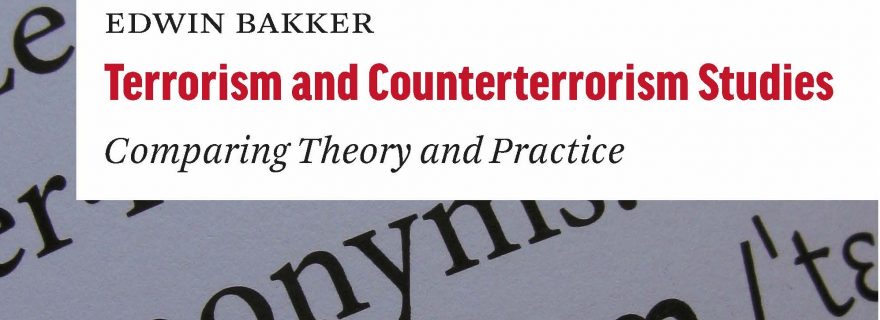All You Can Read
In the average, a new book on terrorism is published every two hours and since it takes at least two hours to read one volume, one can go on reading new books forever. Many of these books are not worth reading - but which ones are?
Edwin Bakker. Terrorism and Counterterrorism Studies. Comparing Theory and Practice. Leiden: University Press, 2015. 238 pp. ISBN 978 90 8728 221 9.
In the average, a new book on terrorism is published every two hours and since it takes at least two hours to read one volume, one can go on reading new books forever, without ever having time to turn to reading old ones, let alone articles. Many of these books are not worth reading - but which ones are?
The slim volume produced by Prof. Edwin Bakker, a by-product of his Massive Open Online Course on Coursera, Terrorism and Counterterrorism: Comparing Theory & Practice is arguably worthwhile.¹ More than 70,000 participants from 170 countries have enrolled in Dr. Bakker’s popular MOOC online course since it was first launched in September 2013. The text covers much of these online materials but goes beyond that in that it also integrates feedback from course participants and materials that did not easily fit into the video-taped sessions.
One of the qualities of this volume is its clarity. There are six chapters which deal, respectively with (i) Definition of terrorism, (ii) History of terrorism (iii) Terrorism Studies, (iv) Assumptions about terrorism, (v)Assumptions about counterterrorism and (vi) Future research topics in Terrorism Studies. A second quality of the volume is its sober contrasting of nine widely held assumptions on terrorism with empirical data. Assumptions tested with empirical data include (i) Terrorism is increasingly lethal, (ii) Today’s terrorism is predominantly anti-Western, (iii) Terrorism is successful, (iv) One can recognise a terrorist, (v) De-radicalisation of terrorists is possible, (vi) Decapitation of terrorist organisations works, and (vii) Terrorism can be defeated.
In each case a bibliography enables the reader to dig deeper into any of these subjects. There are 80 boxes and figures to illustrate arguments. These cover topics ranging from the 1995 Sarin attack in Tokyo to the UN approach to terrorism, from evaluating terrorism prevention programs, to cooperation between academics and practitioners, from terrorism and tourism to the role of the media in spreading fear.
The volume ends with an appeal to the reader to resist polarization and to show resilience – a theme that was also the topic of Edwin Bakker’s inaugural lecture when he became Professor in Terrorism Studies at Leiden University in 2012.
¹ However, I have to declare possible bias and conflict of interest here since I was marginally involved in the making of the course. The present volume’s Appendix on 50 Un- and Under-researched Topics in the Field of (Counter)Terrorism Studies is also from my hand. Looking at the index, I also find myself cited more often than other colleagues from the first, second or third generation of terrorism researchers (Crenshaw, Rapoport, Wilkinson, Laqueur, Jenkins, Post, Mickolus, Price, Merari, Clutterbuck, Taylor, Sprinzak, Hoffman, Silke, Horgan , Stern, Jones & Libicki, Piazza, Richardson, Furedi, Bjorgo, De Graaf, Jackson, Pape, Bloom, Mueller, Neumann and Bakker).
Editorial note: For more information about the book, see the video below or go to the website of Leiden University Press. On Monday June 29th, 20:00 Leiden Time, Prof. dr. Bakker will host a live video chat on Islamic State, foreign fighters and his new book. The Hangout can be streamed on Youtube and Google+.


